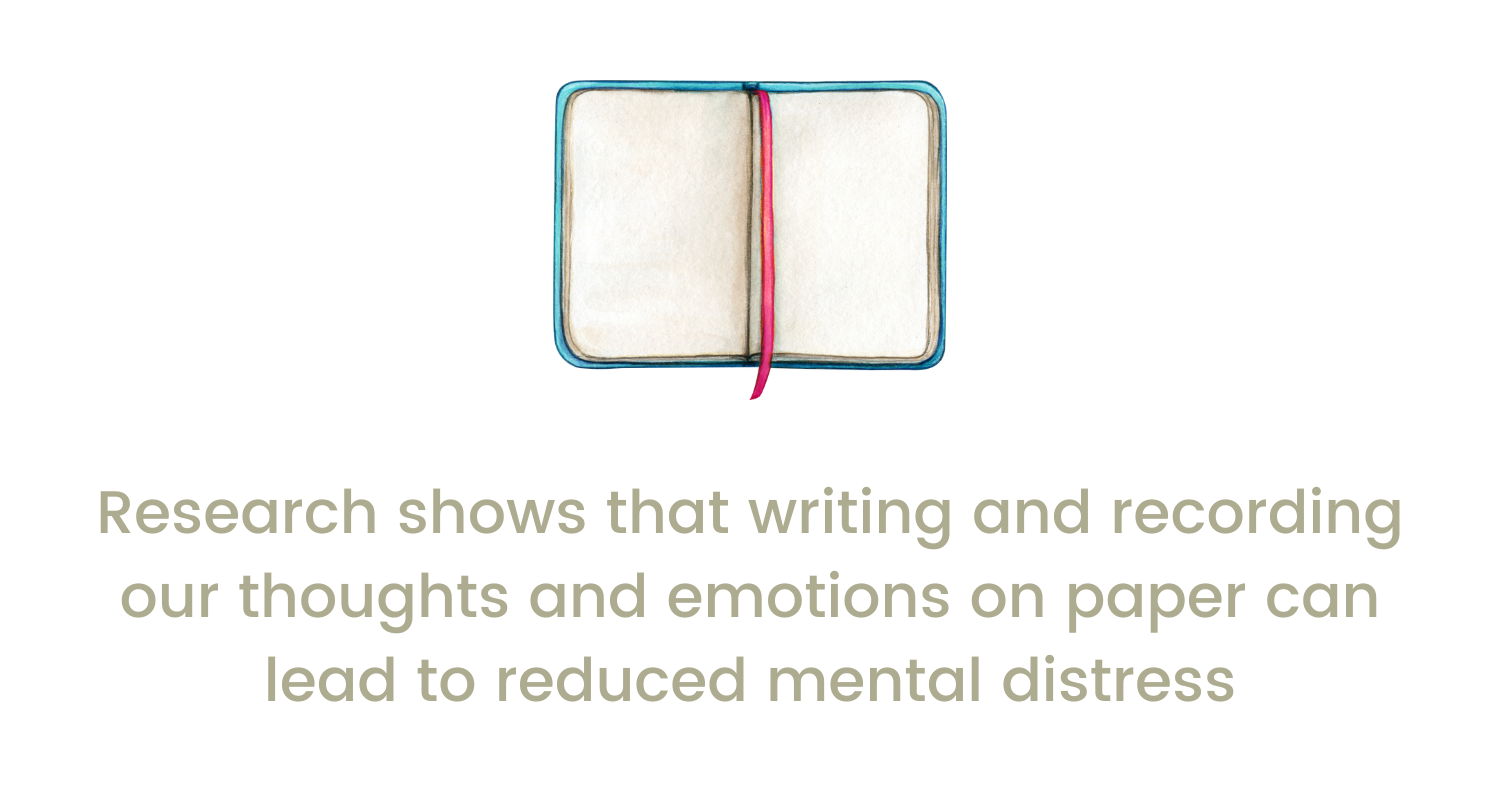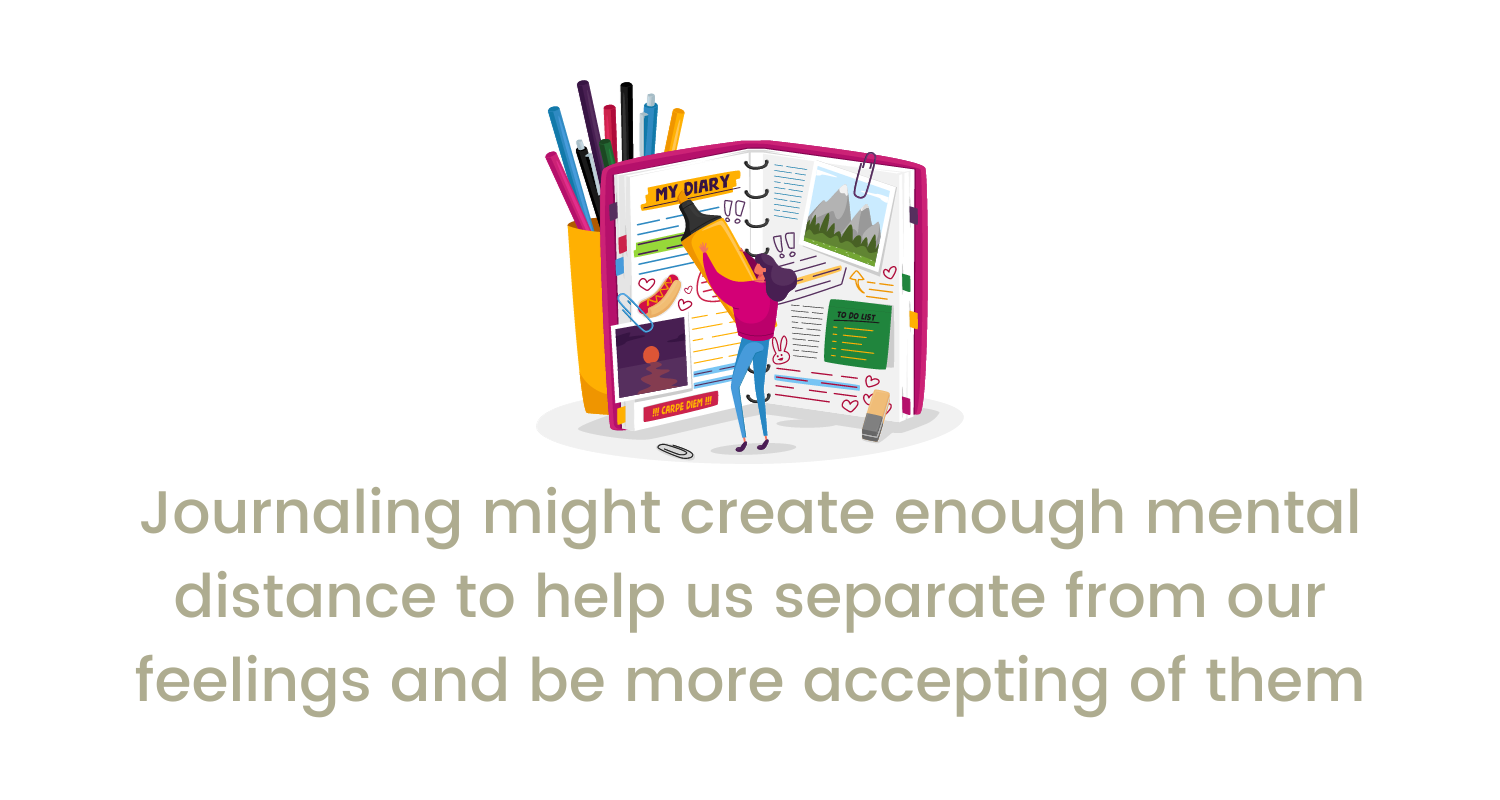Benefits of Journaling: 5 Expert Opinions and Studies
In the fast-paced, digital age we live in, it's easy to overlook the timeless practice of journaling. Often associated with teenage diaries or a mere collection of thoughts, journaling is a profoundly transformative habit. Many people used journaling for centuries to boost mental and emotional well-being.
In this blog post, we're diving deep into the art and science of journaling. We'll explore how this seemingly simple act of putting pen to paper (or fingers to keyboard) can have a profound impact on your life. From reducing stress and anxiety to enhancing self-awareness and creativity, journaling is a versatile tool that can help you navigate life's challenges and embrace its joys.
Join us on this journey of self-discovery and personal growth as we uncover the myriad benefits of journaling and learn how to harness its power to lead a more mindful and fulfilling life.
Table of Contents
National Alliance on Mental Illness
Journaling for Stress Management
National Library of Medicine: Randomized trial of a brief depression prevention program
National Alliance on Mental Illness
According to the National Alliance on Mental Illness (NAMI), you can live a healthy and productive life even if you have a mental illness, but it means finding healthy ways to deal with it. One of the simplest and most effective ways recommended by therapists and counselors is journaling. Surprisingly, not many people use this tool.
The experts agree that thoughts fill everyone's mind, which can be especially overwhelming if you have a mental illness. Life is full of events, ideas, information, surprises, and frustrations. NAMI says that without a way to let go of negative emotions, all those thoughts and feelings can make you feel really upset.
Journaling won't solve everything, but it can help clear your mind and let you keep track of how you're feeling, what makes you feel bad, and if there are any patterns. It can also help you figure out what actions make you feel better, so you can do more of those things.
NAMI goes on to say that keeping a journal is a way to discover more about yourself and think back on how you felt at different times or during different parts of your situation. But if you want to get the most out of journaling, you need to be totally honest and open with yourself. You also should stick with it regularly. It's also a good idea to be specific and give lots of details in your entries.
Writing down your thoughts and mental health symptoms can make life feel more manageable for those who find it challenging. NAMI believes it can bring clarity when things are uncertain and reduce the negative thoughts that often appear for people with mental illness.
Journaling is a powerful way to turn strong emotions into positive energy within yourself. It's a way to express yourself that, when done right, can lead to personal growth. When you put your thoughts and feelings on paper, you have to slow down and pay attention to the details you might have overlooked otherwise. Through journaling, you have to confront your most intense feelings rather than avoid them.
PositivePsychology.com
Positive Psychology compiled a list of academically reviewed papers that prove journaling and tracking your symptoms is beneficial to your mental wellness.
According to this leading expert, keeping a record of personal thoughts and feelings is particularly helpful in supporting mental health by…
Reducing anxiety
Breaking away from a nonstop cycle of obsessive thinking and brooding
Improving the awareness and perception of events
Regulating emotions
Encouraging awareness
Boosting physical health
Studies show that by capturing our thoughts and feelings on paper, “participants often reveal a considerable range and depth of emotional trauma”. Research participants report that they find journaling valuable and meaningful. They find it to be a valuable part of the acceptance process.
Research suggests a wide range of physical, cognitive, and emotional benefits from expressive writing. We know this because of the self-reports made by research participants. Benefits include…
Lowered blood pressure
Improved lung and liver function
Less time spent in hospital
Better moods
Improved psychological wellbeing
Fewer depressive and avoidance symptoms
Reduced stress-related visits to the doctor
Less work absenteeism
Less time out of work following job loss
Higher student grade averages
According to Positive Psychology, journaling has five surprising benefits depending on the reasoning behind your journaling experience.
Journaling for Anxiety
Journaling has proven popular and effective for treating clients experiencing anxiety. This is possible because of an improved acceptance of negative emotions and a more helpful emotional response to stress.
One meta-review of research studies suggests that journaling may be a more effective treatment for anxiety in women than men. That said, both groups have a positive effect. Journaling for longer than 30 days may maximize mental wellbeing benefits
Journaling for Depression
Research suggests that expressive writing and gratitude journaling can reduce symptoms of depression. This means that journaling provides an effective intervention for clients receiving treatment in therapy.
Like with anxiety, these interventions also seemed to work better when they lasted for more than 30 days. While the improvements might not be as significant as they are for anxiety and post-traumatic stress disorder (PTSD), journaling still seems to be a valuable approach.
Journaling for Stress Management
Journaling can help with coping and lessen the effects of stressful events, which might help prevent burnout and long-term anxiety. Research shows that writing about stressful experiences privately and recording our thoughts and emotions on paper can lead to reduced mental distress.
When we use journaling as a tool for managing stress, expressing our emotions through writing may even make it more likely for us to seek support from others. This, in turn, can lead to emotional healing and a greater ability to handle stress.
Journaling for Reflection
When we're stressed or overwhelmed by negative thoughts, it's hard to see our situation clearly. Keeping a journal can give us the space and distance we need to think about what's happened, where we stand now, and what lies ahead.
Journaling might create enough mental distance – like looking at our thoughts from the outside – to help us separate from our feelings and be more accepting of them. This can also help us commit to the changes we want to make.
Journaling for Recovery
Studies indicate that journaling, especially expressive writing, can be beneficial for individuals dealing with or recovering from the emotional trauma linked to PTSD.
An innovative method that incorporated journaling and visualization seemed to provide long-term assistance to war veterans.
National Library of Medicine: Randomized trial of a brief depression prevention program
PubMed conducted a trial to look at the benefits of five different ways to help depression, including journaling. In this study, researchers tested a short group program to prevent depression in young people. They compared it to doing nothing (the placebo group) and trying four other things could benefit the trial participants.
The trial looked at 225 young people who were at high risk of getting depressed (average age 18, 70% girls). The researchers split these young people into different groups: one did the program, another talked in a group, some read books, others wrote about their feelings, and some just waited. They checked how they felt before, after, and 1 and 6 months later.
All five active ways to help with depression worked better than doing nothing.
The benefits of the program and reading books lasted even after a few months. The program, group talks, and reading books helped more than writing about feelings and keeping a journal at certain times later on.
This suggests that there are various ways to help young people feel less depressed, but some of the effects might be because people expect them to work or pay more attention to them.
Arak University Of Medical Sciences
Arak University studied the impact of journaling on Anxiety and stress in multiple Sclerosis patients.
According to the study, Multiple Sclerosis (MS) is a common long-term illness that affects the Central Nervous System. It's important to note that many people with MS are young adults, and it can be very disabling. MS patients often experience psychiatric issues like anxiety and stress.
One way to potentially help with these problems is through journaling, a cost-effective method that involves writing down your thoughts and emotions. Researchers studied this method for its positive effects on the mental and physical health of people with chronic illnesses, but it wasn't analyzed in MS patients yet. The goal of this study was to see if journaling could reduce anxiety and stress in people with Multiple Sclerosis.
People with MS often have higher levels of anxiety and stress than usual.
Before the study, both groups had similar scores for anxiety and stress. However, one month after the intervention, there was a noticeable difference between the two groups. The group that did journaling had lower scores for anxiety (p=0.001) and stress (p=0.001). The effectiveness of journaling wasn't linked to the patient's gender or age.
In conclusion, journaling and expressing emotions in writing can help reduce anxiety and stress in MS patients. Since this technique can improve the well-being of these patients, doctors should offer it to everyone with multiple sclerosis.
National Library of Medicine: Online Positive Affect Journaling in the Improvement of Mental Distress and Well-Being in General Medical Patients With Elevated Anxiety Symptoms
According to the National Library of Medicine, positive affect journaling (PAJ) is a way to help people regulate their emotions. It has shown positive results with patients who have medical conditions. You can adapt this method for online use to reach more patients who are dealing with medical issues and feeling stressed.
This study wanted to see if a 12-week online PAJ program could help patients with medical conditions feel better emotionally and improve their quality of life.
They got 70 adults with various medical conditions who were feeling anxious. Half of them did the online PAJ program, and the other half got regular care. The PAJ group did 15-minute sessions online, three times a week for 12 weeks. They filled out surveys about how they were feeling at the start and end of each month.
Most patients stuck with the online program. PAJ helped them feel less mentally distressed and better overall compared to when they started. After one month, PAJ also reduced depressive symptoms and anxiety, and after the first and second months, it increased resilience compared to the regular care group.
Using PAJ online can be a good way to help people with medical issues feel better emotionally and function better physically. It can be part of regular medical care to improve people's quality of life.
Conclusion
In conclusion, journaling is a powerful tool that can bring numerous benefits to your life. Whether you're looking to reduce stress, increase self-awareness, improve your mental health, or simply become a more organized and productive individual, keeping a journal can help you achieve your goals.
Through the act of writing, you gain clarity about your thoughts and emotions, making it easier to navigate the complexities of life. It provides a safe space for self-expression and self-discovery, allowing you to confront challenges and celebrate successes. Moreover, journaling is a versatile practice that you can tailor to your needs and preferences, whether you prefer traditional pen and paper or digital platforms.
So, why not give journaling a try? Start today, and you may find that this simple yet profound habit can lead to a happier, healthier, and more fulfilling life. Get your mental health planner by clicking here. Happy journaling!










